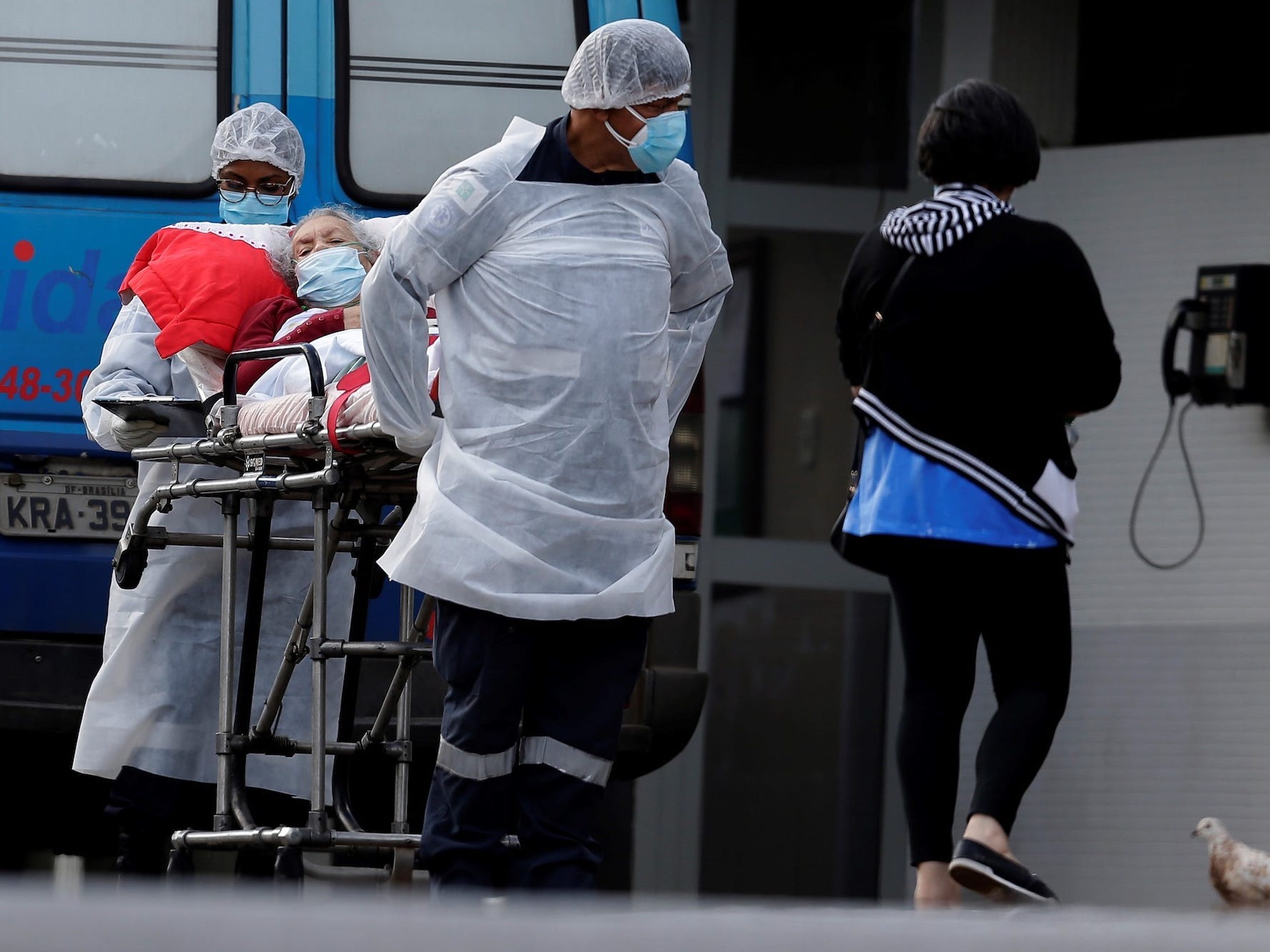
Xinhua/Lucio Tavora via Getty
- The coronavirus variant first found in Brazil, P.1, is still mutating, Brazil's top public health body said.
- Some of these mutations may make the shot more resistant to vaccines, Fiocruz said.
- Another study published Wednesday indicated P.1 could reinfect people who previously had COVID-19.
- See more stories on Insider's business page.
The P.1 coronavirus variant causing cases to soar in Brazil, Canada, and elsewhere is mutating in "particularly worrying" ways that could make it more resistant to vaccines, researchers from Brazil's leading public health body have warned.
The variant is also able to reinfect people who have already caught coronavirus, a new study published Wednesday suggested.
Felipe Naveca, a researcher at public-health body Fiocruz, said the new mutations affected the part of the virus that attaches to cells, called the spike protein, and could make vaccines that target this protein less effective, per Reuters.
"We believe it's another escape mechanism the virus is creating to evade the response of antibodies," Naveca said. He works in the Amazon city of Manaus, where the P.1 variant is believed to have originated in December.
"This is particularly worrying because the virus is continuing to accelerate in its evolution," he added.
Naveca said that the new changes appeared to be similar to the mutations seen in the variant first found in South Africa, called B.1.351. In early lab tests, antibodies produced by Pfizer-BioNTech and Moderna's COVID-19 vaccines couldn't attach as well to B.1.351 compared to the original coronavirus.
In the separate, new study published Wednesday, researchers said that previous coronavirus infection offered between 54% and 79% protection against future P.1 infection, compared to protection against COVID-19 infection with other virus strains. The study was conducted by the University of São Paulo, Imperial College London, and the University of Oxford.
The public health agency in Canada, where there has been a rise in P.1 cases in recent weeks, said in the statement Thursday that early evidence suggested the P.1 variant may reduce vaccine effectiveness, "making it even more important to control its spread."
P.1 is about twice as contagious as the original virus and has spread to 36 countries, according to the Global Initiative on Sharing All Influenza Data (GISAID). Just under 500 cases have been reported in the US across 31 states, according to the Centers for Disease Control and Prevention (CDC).
In countries where it is prominent, P.1 is infecting a high number of younger people. Brazil hospital data shows that in March more than half of all patients in intensive care were aged 40 or younger, per Reuters.
Ester Sabino, a scientist at the faculty of medicine of the University of Sao Paulo, told Reuters that further mutations of the P.1 variant were not surprising given the fast pace of transmission.
"If you have a high level of transmission, like you have in Brazil at the moment, your risk of new mutations and variants increases," she said.
